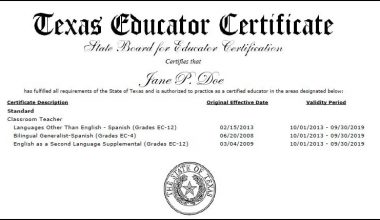So, you found a tutor – great, really! They seem really smart and helpful, but you might be wondering… what happens next?
How should the student-tutor meeting go? The first meeting can feel a little awkward, right? You’re basically meeting a stranger who’s going to help you with schoolwork.
Think of the first meeting as getting to know a new friend who’s super good at learning stuff. It’s a chance to see if you click and feel comfortable working together.
The tutor will probably want to learn a bit about you and what you’re struggling with in school. You can also ask them questions to see if they’re a good fit for your learning style.
In this article, we will explain everything you need to know, from what to expect to what questions to ask. By the end, you’ll feel confident and prepared for your first meeting with a student and tutor.
Table of contents
- Why is the First Impression so Important?
- The Importance of Right Questions in the First Meeting of Student and Tutor
- How Should the First Meeting of Student and Tutor Go?
- Dress to impress (but not to intimidate) and arrive on time.
- Introduce yourself and find out what your student’s aims are
- Explain how sessions will work.
- Bring resources and assess their current level of study.
- Make the student feel confident.
- Teach them something new.
- Leave some home learning.
- Build a rapport with the student’s parents.
- Tutor Should Ask some Questions Directly to the Child
- The Tutor Should Explain How Their Lessons Work Generally
- The Tutor Should Assess the Child’s Skills on the First Meeting with Student and Tutor
- Tutor Should Speak in a Way That the Child Understands too.
- FAQs – First Meeting Student and tutor
- Conclusion
- References
Why is the First Impression so Important?
When a tutor and student first meet, the first impression they make is important because it can establish the tone and expectations for the duration of their working relationship.
Making a good first impression can create positive and encouraging learning environments where the student feels at ease and confident.
Better learning outcomes may result from the learner becoming more motivated and engaged as a result.
In contrast, a poor first impression or lack of professionalism can contribute to a bad learning environment, which can lower student engagement and motivation and result in less effective learning results.
Read also: Online Math Tutors: 17 Best Online Math Tutoring Services
The Importance of Right Questions in the First Meeting of Student and Tutor
As a parent, you significantly impact your child’s ability to find the ideal tutor and succeed in tutoring.
The tutor should ask your child several important questions during the initial encounter to better understand your child’s needs and challenges and create a teaching plan that is suited to their specific requirements.
During the initial visit with your child, a qualified instructor might pose the following questions as examples:
- What are your tutoring objectives?
- What topics or subjects do you need assistance with?
- What are your academic strong points and weaknesses?
- What aspect of studying do you find the most difficult?
- How do you like to learn best?
- When are you available for tutoring sessions, and what does your schedule look like?
- What are your goals for tutoring, and how can I support you in achieving them?
As a result, the tutor can guide your child more effectively and efficiently and help them reach their objectives more rapidly.
As a parent, you can help your child succeed in tutoring by ensuring that the tutor asks questions of this nature and offering your input and feedback on your child’s requirements.
How Should the First Meeting of Student and Tutor Go?
Here are ways on how the first meeting of student and tutor can go
Dress to impress (but not to intimidate) and arrive on time.
Tutors must reflect on the goals of their students, so how you present yourself is crucial. Tutors should present themselves professionally and dress in business casual.
If you were instructing young children, you would only dress differently for business accounting lessons.
Whether you like it or not, your students and their parents will instantly rate your suitability based on how you are dressed, so dress nicely.
You may need to make a better first impression by not arriving late for class. If you need more time, leave early or schedule the class for a little later than you think is preferable.
Make sure you always have your student’s specific address well in advance and have your travel itinerary planned so you arrive on time.
Also, read: What Happens if Your Teenage Child Refuses to Go to School in the UK?
Introduce yourself and find out what your student’s aims are
Obviously, students want to excel, but they also want to enjoy learning and collaborating with someone they like, so get to know them! Inquire about them and make an introduction.
Each student will require a different strategy, but the goal is to put them at ease and get them chatting. You should find out where they attend school or college, what they enjoy studying, their hobbies, and other things.
Once more, this will depend on your student’s age. Ask them if they are old enough, what their goals are, and what they specifically need assistance with.
In addition, this is one of the ways you have the first meeting with the tutor.
Explain how sessions will work.
Since many students have never had a tutor before, it is up to you to decide what will be covered. Inform them of the ideal way for lessons to go and how sessions differ from those at school or college. Explain that:
- It will be more like a conversation.
- To stop you when they don’t understand anything.
- To ask questions whenever they need to.
- You will work on the areas they struggle with, which will help them the most.
- And answer questions they might have about how it will work.
Before the first session begins, you have already made the initial impression. Make sure you have a solid onboarding process so that by the time your students first encounter you in person, they will already be familiar with you.
This might involve asking them to fill out a survey before your first meeting so you can get a general idea of their present skills.
You should also make sure you both have each other added to the platform you’ll be using, and they should be aware of what to expect from lessons with you and how the software you’ll be using operates.
Bring resources and assess their current level of study.
Ask your student to complete some pre-made tasks or questions to determine their degree of proficiency and working style. This accomplishes several things:
- Bringing materials shows that you have thought about the lesson and are committed to making sure they succeed.
- It lets you view the level at which your student is working. Both parents and students frequently doubt their own or their children’s abilities. Once they have more information, you may disagree with their school’s evaluation. This is essential for enabling you to plan for subsequent sessions.
- You can observe their methods of operation and attitudes toward learning. Students frequently want assistance with their study techniques.
Related Post: Do Video Games Make You Smarter? Expert Guide
Make the student feel confident.
Starting tuition at a lower level than the student proposed in your earlier discussions is a good idea. You can determine whether to go along more swiftly by pushing them early in the process.
This will enable them to adjust to private instruction while allowing for a rapid assessment of their actual skill level. Additionally, it will enable you to make sure they advance during their initial sessions.
A student can feel discouraged and decide tutoring isn’t for them if they discover they struggle with a significant portion of the material in the first lesson.
You should give a student a few “easy wins” so that you can let them amaze you with their knowledge.
Teach them something new.
Even while the first lesson is mainly about determining the student’s level, you also need to show off your tutoring skills! Keep in mind that you do need to market yourself because parents and students have a lot of tutoring options.
Please, choose one location where your student erred, and have them practice this skill there. Become animated. Consider using diagrams, making notes you can leave for them, or even using multimedia materials.
Kids adore cutting-edge websites, applications, and videos. If you are still determining what you’re going to discuss, this might be more difficult, but as you instruct more and more, you’ll have a fantastic library of resources and references you can use.
Also, read: My Child Won’t Go to School Because of Anxiety UK? – Advice from a Student
Leave some home learning.
Your students will need to practice the skills you teach them when you’re not there to make significant improvements. Therefore, you will need to provide them with some assignments.
Even though the phrase “homework” might make some people cringe, you should always give your students something to practice at the end of your first class together.
This will demonstrate to students that you are seriously considering how to assist them in achieving their objectives.
Leave a relevant and engaging exercise so your student won’t feel that learning with you is just more homework.
If everything has gone according to plan, the student will have realized how much your tuition will benefit them by this point.
Build a rapport with the student’s parents.
It’s crucial to establish a strong relationship with the student’s parent(s) during the initial session in addition to the pupil. Shake hands, be nice, etc., when you first come, but mostly as you depart.
After the first session, give the parents at least 10 minutes to talk about their child’s requirements. You should add this time to the allotted time for the actual lesson.
Being a tutor means assisting your pupils in developing their confidence and making significant progress.
One hour a week can make a difference, but it can have a significant impact when you establish rapport with parents to help them support their children and create an excellent strategy to help.
Tutor Should Ask some Questions Directly to the Child
Inquiring about the child’s requirements and aspirations during the initial encounter between a tutor and a student is crucial.
To accomplish this, the tutor must explicitly inquire about the student’s tutoring goals and any particular areas where the student requires assistance or support.
This can assist the tutor in personalizing their instruction by better understanding the child’s unique requirements and issues.
Additionally, asking the youngster directly helps foster a relationship of mutual respect and trust. As a result, tutoring may be more productive.
As a parent, you may have a greater comprehension of your child’s difficulties and problems, and you can offer helpful suggestions and feedback to the tutor about these issues.
The tutor should still personally question the student, though. Excellent tutors inspire students, motivate them, and help them gain confidence by serving as role models.
To make the learning process as successful and efficient as possible, it is crucial that the tutor and student trust and communicate openly and honestly with one another.
See also: Where Can I Send My Troubled Child For Free | Top 10 Places
The Tutor Should Explain How Their Lessons Work Generally
Tutors should describe their study strategy and how to modify it depending on the student they are working with.
Tutors should describe their process to the student. How do they use the session’s one hour? How efficiently do they handle time?
However, depending on the child’s age, this may change. For instance, unlike when teaching younger children, a tutor shouldn’t use games to teach your child about A-levels or GCSEs.
Tutors should describe their feedback procedure to parents to make clear how they collaborate with the kids.
Tutors are aware that this conversation can be unsettling for teenagers in particular, so be careful not to place unreasonable expectations on them. Your teen will become even more hostile because of this.
Also, the tutor must disclose their resources and whether they are appropriate for your child. If your child learns best visually, the tutor mainly uses verbal explanations. That may not be of much use.
The Tutor Should Assess the Child’s Skills on the First Meeting with Student and Tutor
The tutor can get to know your child and learn more about them during this initial appointment.
They ought to inquire about the student’s time management skills, learning style, personality, interests, goals, and strengths and weaknesses.
While it may not seem useful, learning more about a student’s extracurricular activities can help the tutor and student develop a strong rapport.
Additionally, the tutor can now locate engaging resources that the student will find appealing.
There might be better ideas than giving the kid a test at the first meeting because the kid can be afraid and forget everything.
Despite this, if the student is at ease taking the test, it can assist the tutor in modifying the lessons and materials that are currently available.
However, they should first ask your child because it can help your youngster feel more at ease and understood.
By doing so, tutors can also determine if there are any communication barriers regarding verbal or written expression between them and the student.
This will help both of you choose the educational strategies that will benefit the youngster the most and keep the teachings from becoming monotonous.
Also read: 10 Ways to Enhance Communication Between Teacher and Student
Tutor Should Speak in a Way That the Child Understands too.
Tutors should make an effort to communicate with students in their language. Using straightforward language, visual aids, and humor can help with this. When giving instructions, they should give examples or share anecdotes about their schooldays.
Additionally, tutors must speak clearly and loudly enough for students to hear and comprehend them. If the learner is young, they might respond better if the tutor speaks with a slightly high voice.
It is also important for tutors to maintain a consistent tone of voice throughout the class. Always sound natural when speaking! A child may become anxious if their voice tone suddenly changes.
FAQs – First Meeting Student and tutor
They’ll inquire about your weak areas and whether you have a set timetable for studying. You should disclose your knowledge and abilities to your tutor as well. They can ask you to complete a few quick exams and exercises to assess your comprehension.
Hello, everybody! [Your Name] here, and I’m delighted to be your online tutor. I graduated from [University] with a [Degree] in [Subject] and have been instructing [Subject] for [X] years. My passion is teaching, and nothing makes me happier than seeing students succeed in their academic objectives and skill development.
Your academic progress, goals, and any challenges you may face and how they impact your studies should be the main topics of discussion when you meet with your tutor. Additionally, you could discuss your course-related evaluations and results.
You could find out where they attend school or college, their favorite subjects to study, what other subjects they are taking, what hobbies they enjoy, etc. Once more, the age of your learner will determine this. If they are old enough, find out their goals and what they need particular assistance with.
See also: Sallie Mae Student Loans: Things you were told about
Conclusion
We hope our suggestions about how to evaluate the tutor will help you.
Above all, remember that teachers’ main objective should always be to ensure that students feel comfortable with the material being taught, regardless of the teaching style or technique they employ in the class.
Tutors might have a lot of knowledge and expertise. Lessons cannot be effective at all if the child does not like the teacher personally.
You can discover tutors on any social media platform, including Reddit, Facebook, and others.
For instance, if you’re looking for online English tutors, look up “online English tutor” in various communities and organizations. If there aren’t any posts on it, write one yourself to assist others.
References
- tutorful.co.uk/ – First tutoring session tips
- schoolsuccess.ca/ – How to prepare for your first meeting with your tutor






